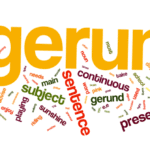Noun & Its Kinds
A noun is a word that names something: a man, place, or thing. In a sentence, things can assume the part of subject, coordinate protest, roundabout question, subject supplement, question supplement, appositive, or descriptor.
Types of Noun
Things frame an extensive extent of English vocabulary and they arrive in a wide assortment of sorts. Things can name a man:
- Albert Einstein
- the president
- my mom
- a young lady
Things can likewise name a place:
- Mount Vesuvius
- Disneyland
- my room
Things can likewise name things, albeit now and again they may be immaterial things, for example, ideas, exercises, or procedures. Some may even be theoretical or nonexistent things.
- Shoe
- Fixture
- flexibility
- The Elder Wand
- ball
Formal people, places or things versus Basic Nouns
One imperative refinement to be made is whether a thing is a formal person, place or thing or a typical thing. A formal person, place or thing is a particular name of a man, place, or thing, and is constantly promoted.
Does Tina have much homework to do tonight?
Tina is the name of a particular individual.
The inverse of a formal person, place or thing is a typical thing, here and there known as a nonexclusive thing. A typical thing is the non specific name of a thing in a class or gathering and isn’t promoted unless showing up toward the start of a sentence or in a title.
- The young lady crossed the stream.
Young lady is a typical noun; we don’t take in the character of the young lady by perusing this sentence, however we know the move she makes. Waterway is additionally a typical noun in this sentence.
Types of Common Nouns
Normal or non specific nouns can be separated into three subtypes: solid things, conceptual things, and aggregate nouns. A solid thing is something that is seen by the faculties; something that is physical or genuine.
- I heard the doorbell.
- My console is sticky.
Doorbell and console are genuine articles that can be detected.
On the other hand, an abstract Noun is something that can’t be seen by the faculties. We can’t envision the mettle it took.
A collective noun means a gathering or accumulation of individuals or things.
- That pack of falsehoods is offensive.
Pack of lies as utilized here is a collective noun. Collective Noun take a particular verb as though they are one element – for this situation, the solitary verb is.
- A pride of lions wandered the savanna.
“Pride of lions” is a collective noun.
Nouns as Subjects
Each sentence must have a subject, and that subject will dependably be a noun. The subject of a sentence is the individual, place, or thing that is doing or being the verb in that sentence.
- Maria is cheerful.
Maria is the subject of this sentence and the comparing verb is a type of to be (is).
Nouns as Objects
Things can likewise be objects of a verb in a sentence. A question can be either an immediate protest (a thing that gets the activity performed by the subject) or a backhanded question (a thing that is the beneficiary of an immediate question).
- Give the books to her.
Books are an immediate question (what is being given) and “her” is the roundabout protest (who the books are being given to).
Plural Nouns
Plural things, not at all like aggregate things, require plural verbs. Numerous English plural things can be shaped by including – s or – es to the solitary frame, despite the fact that there are numerous special cases.
- feline—felines
These two felines are both dark.
Note the plural verbs are:
- Assess—charges
- House—houses
Countable Nouns versus Uncountable Nouns
Countable things are things which can be checked, regardless of whether the number may be remarkably high (like including every one of the general population the world). Countable things can be utilized with an/a, the, a few, any, a couple, and many.
- Here is a feline.
Feline is particular and—clearly—countable.
- Here are a couple of felines.
- Here are a few felines.
Uncountable things are things that arrive in a state or amount which is difficult to tally; fluids are uncountable, as are things that demonstration like fluids (sand, air). They are constantly thought to be particular, and can be utilized with a few, any, a bit, and much.
- An I.Q. test measures insight.
- Insight is an uncountable thing.
Understudies don’t appear to have much homework nowadays.
This case alludes to an unspecified, unquantifiable measure of homework, so homework is an uncountable thing.
Possessive Nouns
Possessive nouns are things which have something; i.e., they have something. You can distinguish a possessive thing by the punctuation; most things demonstrate the possessive with punctuation and a s.
- The feline’s toy was absent.
The feline has the toy, and we indicate this by utilization of ‘s toward the finish of feline.




